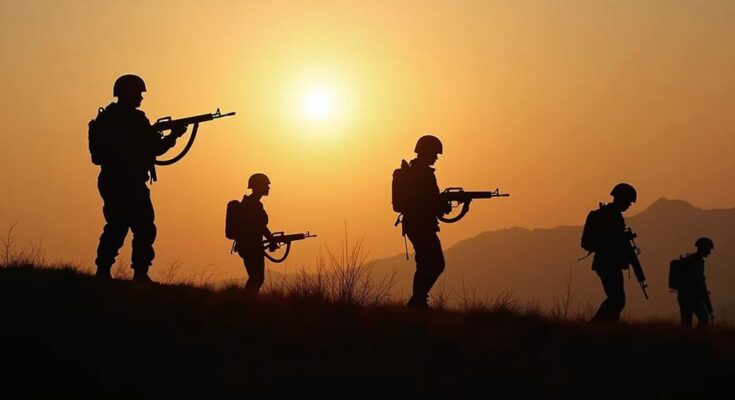Iran has announced it will not send military forces to Lebanon or Gaza in response to Israeli airstrikes, citing local capabilities to defend against aggression. The remarks follow tensions stemming from the killings of prominent Iranian and Hezbollah leaders, with pledges of retaliation against Israel for its military actions. Iranian officials have expressed solidarity with Hezbollah and have warned of retribution for the recent strikes.
The Iranian foreign ministry has officially stated that the country will not send forces to Lebanon or Gaza to engage in combat against Israel. Nasser Kanani, the foreign ministry spokesman, emphasized that there is no requirement for Iran to deploy additional or volunteer forces, asserting that both Lebanon and the Palestinian fighters possess the necessary strength and capability to defend themselves against Israeli aggression. Recent Israeli military actions have seen substantial airstrikes targeting various factions aligned with Iran in the region, particularly in Lebanon, Syria, Yemen, and Iraq. The airstrikes intensified following the killing of Hassan Nasrallah, the leader of the Lebanese militant organization Hezbollah, which has historically received support from Iran. Kanani further noted, “We have not received any request in this regard from any side,” affirming that regional forces do not require Iranian military assistance. Nevertheless, he warned that Israel would face consequences for its actions against Iranian personnel and resistance groups. In a significant show of solidarity, Iranian President Masoud Pezeshkian visited Hezbollah’s office in Tehran to honor Nasrallah’s legacy. Supreme Leader Ali Khamenei insisted that Nasrallah’s death would not be in vain, while First Vice President Mohammad Reza Aref declared it would contribute to Israel’s eventual downfall. Furthermore, Iran has declared its intention to retaliate for the deaths of both Nasrallah and Abbas Nilforoushan, a high-ranking commander of the Quds Force. Reports have indicated that in addition to Nasrallah, over twenty Hezbollah members were also killed during the Israeli operations.
The relationship between Iran and Lebanon, particularly through Hezbollah, remains a pivotal aspect of the regional dynamics involving Israel. Iran has historically provided military and financial support to Hezbollah, allowing the group to become a significant force in the region. Recent escalations involving Israeli airstrikes against Iranian-backed groups have raised tensions, especially following high-profile casualties. The statements from Iranian officials underscore a complex interplay of deterrence, support, and the assertion of local capabilities among allied forces in the region.
In conclusion, Iran’s decision against deploying forces in Lebanon and Gaza illustrates its confidence in regional allies’ abilities to defend themselves against Israeli assaults. Despite the loss of prominent leaders such as Hassan Nasrallah, Iran maintains a stance of solidarity and warns of possible repercussions for Israel’s military actions. This moment underscores the ongoing tensions and strategic calculations within the volatile geopolitics of the Middle East.
Original Source: english.alarabiya.net




